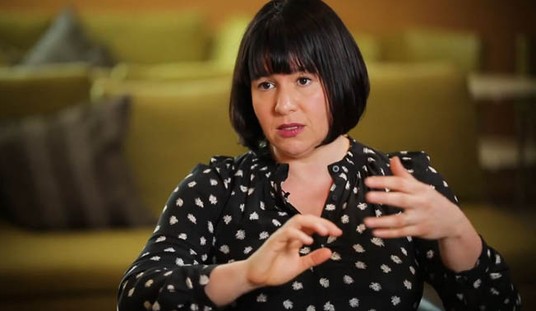To be clear, this is the first major Republican endorsement of 2016. A few big-name Democrats, like Tim Kaine and Claire McCaskill, are already busily kissing Hillary’s ass to atone for having supported Obama early in the 2008 primaries. Almost as if they think the Clintons are bitter grudge-holders who’ll be eager to retaliate against their enemies once they’re back in power.
Anyway, congrats to Rand for having landed the support of a tea-party icon. Can the John Boehner endorsement be far behind?
It’s a safe bet that Paul won’t be the only member of McConnell’s GOP caucus who considers trying for a move to the other end of Pennsylvania Avenue.
Does that require a tricky balance?
“(It’s) not tricky at all,” McConnell said. “Obviously, I’m a big supporter of Rand Paul. We’ve developed a very tight relationship, and I’m for him.”
For president?“Whatever he decides to do,” McConnell said. “I don’t think he’s made a final decision on that. But he’ll be able to count on me.”
Interesting question here: Who’s the target audience for this endorsement? Obviously it’s not grassroots conservatives. If anything, as a few of our commenters in the Headlines thread on this demonstrate, it’ll call Paul’s tea-party credentials further into question. Rand’s not worried about that, though — if you’re a “conservatarian” or someone who wants a nominee more heterodox than the usual establishment/conservative choices, McConnell’s endorsement won’t scare you away. The target audience here in theory is the GOP establishment itself, particularly the donor class to whom Rand will soon be appealing for contributions. They’re worried that he’ll be too dovish as commander-in-chief and, more importantly, that he’ll be agreeable to draconian spending cuts that might hurt business. Establishmentarians don’t like unpredictability and Paul’s the least predictable man in the GOP. The endorsement of McConnell, a Beltway chieftain, is designed hypothetically to reassure them that he’s not a loose cannon after all.
As I say — that’s the theory. In practice, though, won’t the donor class view this endorsement as essentially transactional? There was a quiet deal here, obviously, that developed out of the two men’s differing ambitions, Rand’s to be president and Mitch’s to be majority leader. Rand would use his sway with Kentucky conservatives to get McConnell reelected, not only endorsing Mitch over tea partier Matt Bevin in the primary but lending McConnell one of his top advisors, Jesse Benton, as campaign manager for the effort. (Benton, a veteran of Ron Paul’s campaigns, famously told a friend in a leaked phone call, “Between you and me, I’m sort of holdin’ my nose for two years because what we’re doing here is going to be a big benefit to Rand in ’16, so that’s my long vision.”) In return, McConnell would endorse Paul for president, granting him the establishment benediction he needs to shield himself from the eventual “kook” attacks from other GOP candidates. “How radical can I be,” Paul will say at the debates, “if even Mitch McConnell is backing me?” All of this is obvious — but since it’s obvious, how likely is it that establishmentarians will take it as a serious vouching for Rand’s credibility? Paul did McConnell a favor and now McConnell’s doing one back. As such, he was more of a lock to endorse Rand than Ron Paul is. Why would a hawkish Republican millionaire feel better about Rand because of that?
So maybe the establishment isn’t the real target. The real target, I think, are the “somewhat conservative” rank-and-file voters who tend to swing the primaries. Many of them don’t follow politics day to day and either won’t know or won’t care about the McConnell/Paul quid pro quo. To them, the endorsement of the highest-ranking Republican in the Senate could be a big deal, especially as a rebuttal to the “kook” attacks. In fact, McConnell may be better positioned to deliver that rebuttal than any Republican in the country. He supported Paul’s more mainstream opponent, Trey Grayson, in the GOP primary when Paul first ran for Senate in Kentucky in 2010. Paul crushed Grayson by nearly 25 points that year in riding a tea-party wave, an early warning to McConnell that he’d better get right with conservatives before his own seat was up in 2014. Now Mitch can go out there next year and say this to GOP primary voters: “Like some of you, before I got to know Rand, I believed the warnings from fellow Republicans that he was too ‘extreme’ to govern responsibly. I ended up supporting his opponent in a primary. Boy, was I wrong. He’s been one of our most creative policymakers in the Senate and has reached out to constituencies that have been impenetrable to our party for years. Ignore the people calling him a radical and embrace him as an agent of real change.” That’s worth something to Rand in the primary, even if tea partiers will hiss at the idea of McConnell’s support carrying weight.
Imagine the irony when Rand ends up losing the general election because Gary Johnson draws just enough libertarian votes to tip the race to Hillary. A libertarian Ouroboros! Exit question via Leon Wolf: All of this is moot because Chris Christie’s going to be the nominee, right?








Join the conversation as a VIP Member